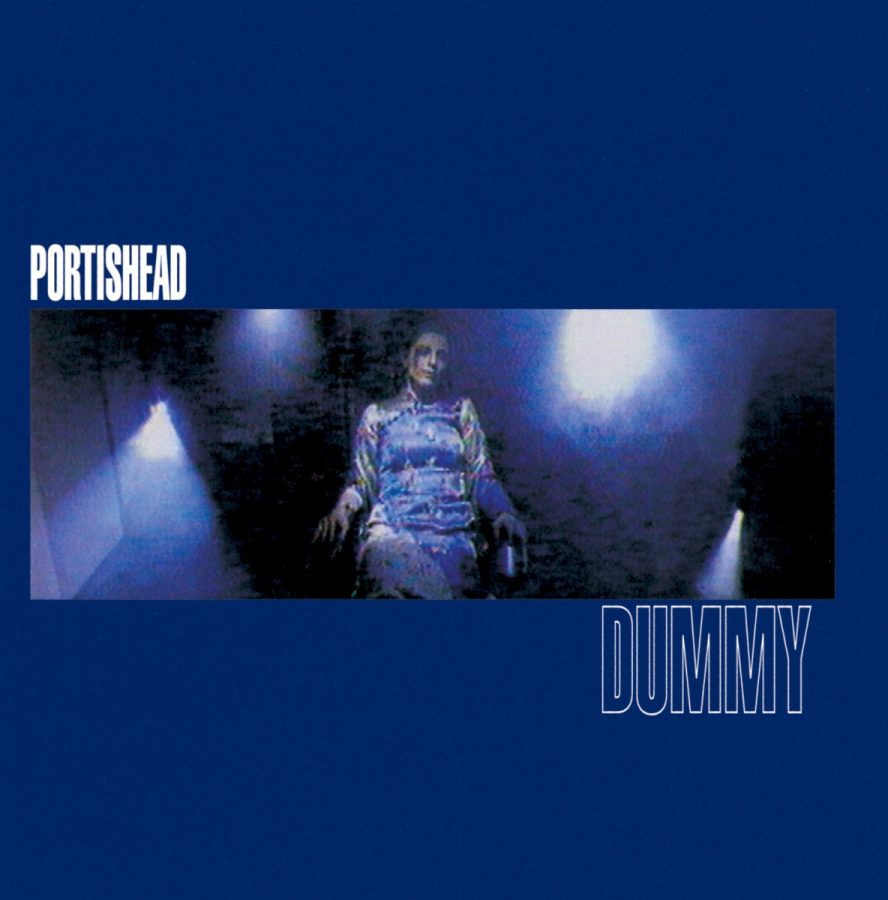Essential Listening: Portishead’s debut helped define trip hop
Dummy, the debut studio album from Portishead, was released in August 1994.
September 28, 2022
Tired of your Spotify playlists? The Purbalite is here to help with our Essential Listening series.
Dummy, the debut album from British band Portishead, helped define the newly emerging genre of trip hop when it was released in 1994.
The album grew trip hop to more mainstream relevance. The LP is filled with percussion reminiscent of hip hop drum beats from the time, jazz samples throughout the record, and prominent elements of electronic music. All of these components became mainstays of the trip hop genre if they weren’t already.
Trip hop itself is a genre that fuses hip hop and electronic music to create a relatively sorrowful sound. Portishead weren’t strangers to the somber, clinical sound of trip hop, with lead singer Beth Gibbons’ delicate, alien vocals adding a sense of mystery to the record.
The most popular track from the album, “Sour Times,” has Gibbons’ ethereal vocals front and center, with a bass sample from a TV theme from a 1960s spy show. The song has a slightly eerie theme, with the chorus repeating “’Cause nobody loves me, it’s true / Not like you.”
The track has a consistently light hip hop beat that adds a little bit of contrast and flavor to the almost self-pitying lyrics.
Another popular song, “Glory Box,” contains a slightly warm sample from soul legend Isaac Hayes. The track is a perfect way to close the album, as after an album of cold, dark tunes, it brings a fiery finish, while still containing the somewhat sad vocals of Gibbons.
About halfway through the track, a roaring, intense guitar riff rips through the track, leaving an impression at the end of the album. The guitar is unlike anything else on the album, making an impact on the listener.
The opener, “Mysterons,” contains a sunken baseline and a cosmic sounding theremin that add an otherworldly sound to the track. Additionally, the track contains a repeating drum roll that adds a sense of consistency to the track, bridging together the strange sounds that the song offers.
“It Could Be Sweet” is a relatively mellow and light song for the LP. It is composed of delicately synthesized drums and a soft Rhodes piano that add to the fragile nature of the track. The track is a welcome break from the moody, dark songs before and after it.
“Numb” is another track that embraces the slightly creepy nature of trip hop. It has a hollow drum beat with occasional organ chords that would make the track fit in on the soundtrack of any seasonal haunted house.
“Roads” might be the saddest song on the album. The track starts with a few seconds of lingering, funereal synths, then adds the solemn vocals that would be familiar to the listener at this point in the album. The track then builds, ending with a grandiose string arrangement that would make anyone weep.
“It’s a Fire” starts with a grandiose string arrangement. The track again has the delicacy of “It Could Be Sweet,” but with a little more warmth. As the song progresses, organ chords on the track give a small sense of religious joy.
Dummy, as a whole, provides the somberness one would look for in any trip hop project, while providing a slightly chilling atmosphere that only the instrumentation and vocals of Portishead could provide.



